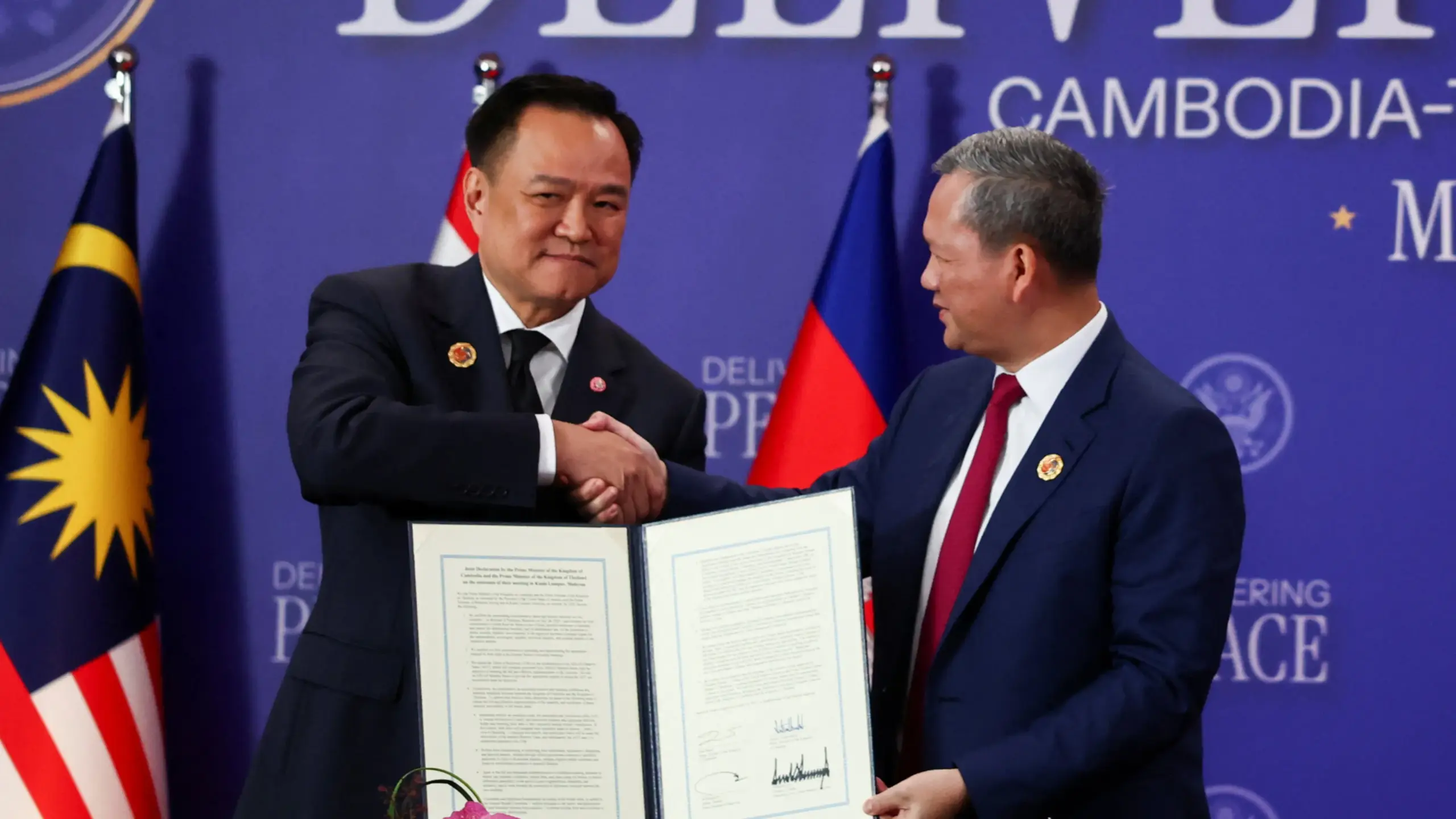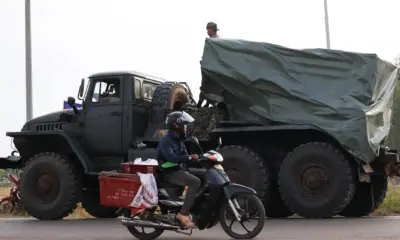News
Thailand halts implementation of border peace deal with Cambodia

Thailand has announced it is suspending the implementation of its recently signed peace agreement with Cambodia, citing renewed tensions and security concerns along their shared border. The decision comes just two weeks after the two countries reached the U.S.-brokered accord in Malaysia, an agreement that was meant to end years of sporadic clashes in the frontier region.
Government spokesperson Anucha Burapachaisri told reporters in Bangkok that the suspension followed a landmine explosion in Sisaket province, near the border, which left several Thai soldiers injured. He said the incident raised “serious concerns about security conditions” and made it necessary to pause the deal until further investigations could be completed.
The explosion occurred in an area that has long been disputed by both nations, part of a rugged, forested zone near the ancient Preah Vihear temple. Both Thailand and Cambodia have claimed ownership of the territory, leading to recurring confrontations over the past two decades. The July clashes alone left more than 40 people dead and displaced hundreds of families from nearby villages.
The October agreement, signed in Malaysia during a ceremony attended by U.S. President Donald Trump, was hailed as a breakthrough in regional diplomacy. While Cambodia described it as a peace deal aimed at creating a lasting truce, Thailand avoided using that term, framing it instead as a “temporary security arrangement.”
Cambodia’s Ministry of Foreign Affairs said on Monday that Phnom Penh remains fully committed to the deal and has urged Thailand to maintain dialogue. “We believe cooperation and patience will restore confidence between our two nations,” a ministry spokesperson said, adding that border patrols have been instructed to exercise restraint.
Thai officials, however, expressed frustration over what they described as “insufficient progress” in establishing joint monitoring mechanisms promised under the accord. The government also said it would conduct an internal review of how the agreement was negotiated and whether the security guarantees offered by both sides are enforceable.
Analysts say the latest setback illustrates how fragile regional diplomacy remains in Southeast Asia, where territorial disputes often intertwine with nationalist politics and military interests. “Trust between Thailand and Cambodia has always been delicate,” said political scientist Chaiwat Sutham. “Even small incidents can quickly undo months of progress.”
The U.S. State Department, which helped mediate the talks, has not yet issued an official response. Observers say Washington will likely push both sides to return to the negotiating table, emphasizing that regional stability remains essential for trade and security cooperation across mainland Southeast Asia.
For now, residents living near the border remain on edge as troops patrol the area and both governments weigh their next steps. The promise of peace that briefly seemed within reach has once again been clouded by uncertainty.
















